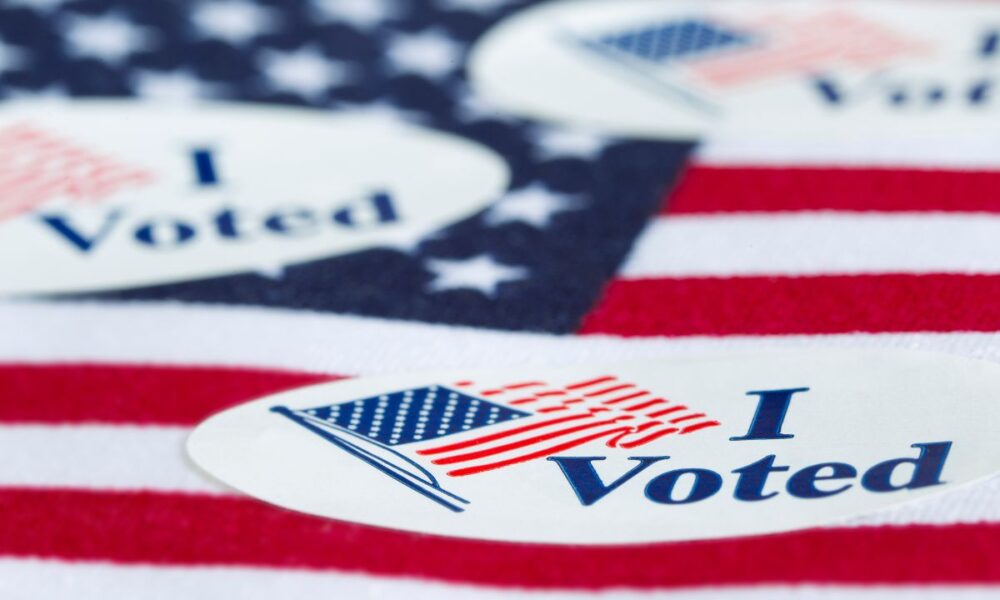(Texas Public Police Foundation) – Today, as global tensions flare with Israel and Iran exchanging fire, a declassified intelligence report alleges a Chinese Communist Party (CCP) plot to produce fake U.S. driver’s licenses to facilitate fraudulent mail-in ballots for Joe Biden in the 2020 election (Just the News, June 16, 2025). In two separate cases within the past two weeks, the FBI arrested and a judge detained three Chinese nationals for allegedly smuggling biological pathogens and materials into University of Michigan (U-M) laboratories.
These incidents cast a spotlight on potential influence operations targeting U.S. elections. Part 1 of this series investigates whether events could signal an escalation of Chinese Communist Party (CCP) interference in U.S. operations, especially in electoral swing states like Michigan.
The Chinese Communist Threat: Real or Imaginary?
U.S. Secretary of State Marco Rubio has consistently warned about the CCP’s threats to human rights, trade practices, and geopolitical influence. But his concern is hardly new. As far back as 1964, J. Edgar Hoover, the director of the FBI, noted that Communist China was infiltrating Chinese-American communities to steal military secrets (New York Times).
In 2019, former FBI Director Christopher Wray, serving under Presidents Donald Trump and Joe Biden, described China’s hacking program as larger than all other major nations combined (April 2019). This writer searched “Chinese spy” on FBI.gov and 813 incidents popped onto the screen. Justice.gov returned 332 active links, most of the incidents predate the current Trump administration, just 150 days old.
The bioweapons arrests amplify these concerns. On June 3, Jian and Liu were charged with smuggling Fusarium graminearum, a pathogen causing vomiting and liver damage, into a U-M lab. Liu, caught at Detroit Metropolitan Airport in July 2024, allegedly hid the material, while Jian, funded by the Chinese government, expressed CCP loyalty (FBI.gov).
On June 9, Han, a Wuhan student, was arrested for smuggling roundworm-related material to the same U-M campus (FBI.gov, June 9, 2025). FBI Director Kash Patel labeled these acts a “direct threat” to America’s food supply.
Newly appointed U.S. Attorney Jerome F. Gorgon, Jr. warned of “the gravest national security concerns.” ClickOnDetroit, June 13, 2025.
A Newly Released Electoral Threat: Alleged CCP Plot in 2020
On June 16, 2025, FBI Director Kash Patel provided Senate Judiciary Committee Chairman Chuck Grassley, R-Iowa, with a declassified August 2020 intelligence report alleging that the CCP mass-produced fake U.S. driver’s licenses to create voter identities for Chinese residents in the U.S., enabling fraudulent mail-in ballots to favor Joe Biden in the 2020 election (Just the News, June 16, 2025).
A confidential source claimed the plot was designed to benefit Biden, and U.S. Customs and Border Protection intercepted nearly 20,000 fake licenses around the same time, offering possible corroboration. However, the report was recalled weeks later and never fully investigated, reportedly due to the need to re-interview the source.
The investigation’s recall occurred around the time then-FBI Director Christopher Wray testified that no known foreign interference plots existed before the 2020 election.
Patel stated, “These documents detail alarming allegations related to the 2020 U.S. election… which, while substantiated, were abruptly recalled and never disclosed to the public.” Just the News, June 16, 2025.
In Michigan, where voters can register in advance of an election with just a driver’s license or Social Security number (Michigan.gov), such a plot could exploit lax verification processes. If substantiated, fake IDs could enable unauthorized voting, particularly in a swing state like Michigan, where electoral margins are tight. These allegations, though inconclusive, highlight the need for robust voter ID checks and real-time verification systems.
Why the Focus on Michigan?
Michigan is strategically important in a number of ways. Geopolitically, it mirrors Ukraine’s role in Europe, sitting at an East-West crossroads with flat topography lacking natural barriers, making it vulnerable to invasion and a key military transit route. Economically, Michigan is considered part of the Midwest “breadbasket of the nation” with fertile black soil, vast agricultural lands. The Mitten state is also home to rich mineral deposits, oil, forestry, a skilled workforce, and world-class academic institutions.
Michigan’s abundant freshwater and Great Lakes shipping routes to the Atlantic enhance its trade significance, with freighters at the Soo Locks often loaded with iron ore, bound for China.
As an energy hub for oil transport from Canada, Michigan parallels Ukraine’s role in Russian natural gas pipelines.
Michigan’s 15 electoral votes can make or break a candidacy. It’s red-blue shifts account for its swing-state status and its vulnerabilities. The state’s bloated voter rolls, outdated election systems, darkening transparency, online and lax registration processes, uneven oversight, and selective application of election laws—all create opportunities for manipulation.
The state’s voter registration process requires only a driver’s license or Social Security number, so this heightens risks, as seen in the alleged 2020 CCP plot and a 2024 incident involving Haoxiang Gao, a Chinese U-M student who illegally voted using his student ID (DOJ.gov).
These weaknesses could allow foreign actors to exploit voter rolls or mail-in ballots, undermining fairness and trust in Michigan’s elections.
The Education Connection
Despite warnings of CCP espionage, an estimated 280,000 to 290,000 Chinese nationals currently attend U.S. colleges and universities. The June 2025 bioweapons arrests highlight how taxpayer-subsidized universities foster research partnerships vulnerable to exploitation. U-M’s past ties to Wuhan University, linked to COVID-19 research, amplify risks (Fox News).
Secretary Rubio announced that the Trump administration will revoke visas for Chinese students with CCP connections or in critical fields (Reuters, May 29). A U-M professor suggested the Fusarium alarm might be exaggerated, but the arrests, combined with Wuhan’s history of pathogen hybridization, raise doubts (ClickOnDetroit, June 13, 2025).
It’s All About Power and Government Control
Michigan’s vulnerabilities extend beyond universities to its waterways, minerals, industrial base, and military installations, making it a strategic prize. The alleged 2020 CCP plot, bioweapons smuggling, and firms like Konnech (election software, Part 2) and Gotion (CCP-linked batteries, Part 3) suggest a coordinated assault.
Thaddeus G. McCotter described the CCP’s “unrestricted warfare” exploiting U.S. institutions (American Greatness, May 31, 2025). If adversaries can infiltrate labs and elections, Michigan’s democratic core is at risk.
Parts 2 and 3 explore Konnech and Gotion, urging Michigan’s leaders to demand oversight to protect the foundations of our republic.


